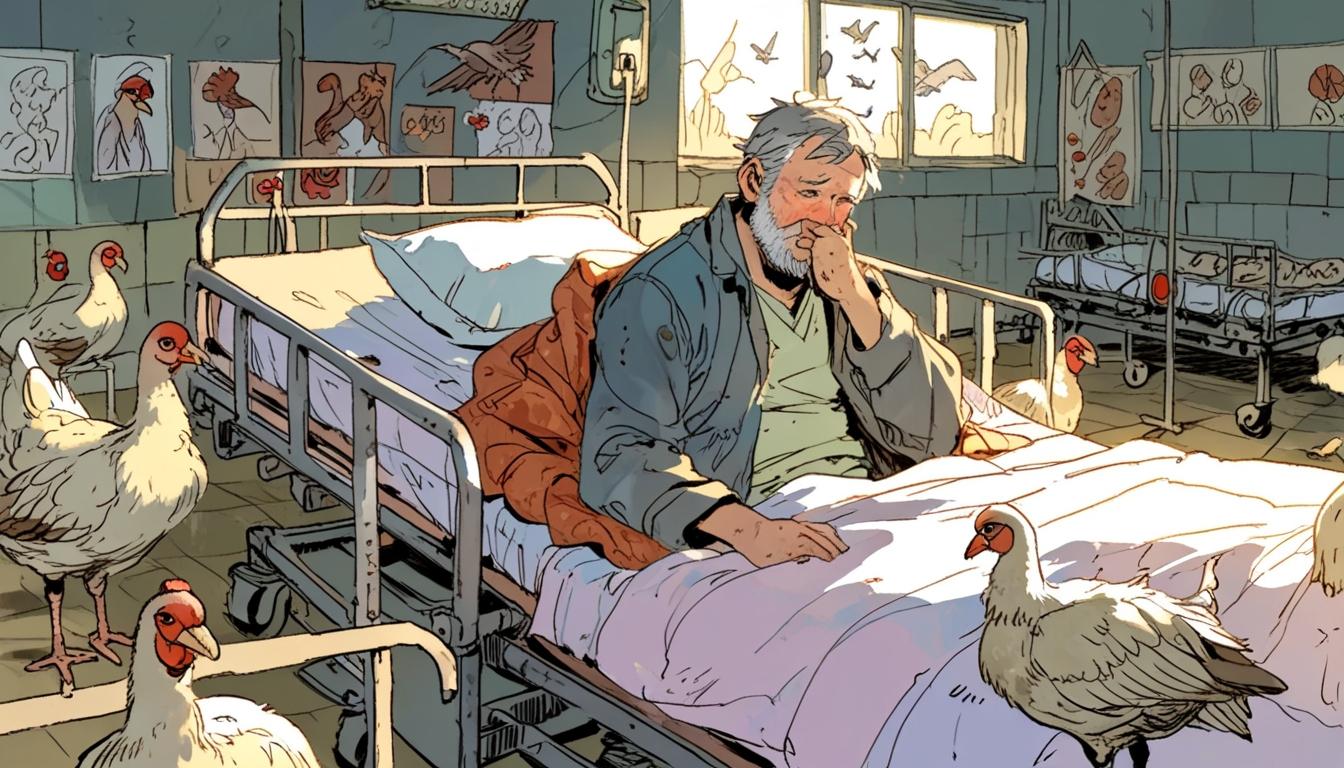A middle-aged man who survived bird flu has revealed the harrowing experience of the infection, which claimed the life of his brother and left him feeling as though his entire skull was throbbing. The virus, known as H5N1, is currently spreading across the United States and has reached the United Kingdom, prompting global health officials to warn of a potential pandemic.
The outbreak, which began in 2022, has already impacted hundreds of millions of birds on farms across all 50 US states, as well as more than 1,000 dairy cow herds. In the United States, there have been 70 confirmed human cases, including one death, with most infections believed to have been transmitted from animals to humans. In the UK, seven human cases of H5N1 have been identified since 2021, the most recent occurring in January of this year. Experts have also expressed concern following the detection of the world’s first case of bird flu in sheep on a Yorkshire farm last month.
Nguyen Thanh Hung, from Hanoi, is one of the few bird flu survivors to speak publicly about his experience. He contracted the virus during a bird flu outbreak in Southeast Asia in 2005, which infected 44 people and killed 32. At the time, Hung was 42 years old and working as a car salesman. He contracted the virus after nursing his sick brother in hospital.
Hung’s ordeal began in December 2004 during Tet, Vietnam’s equivalent of Thanksgiving, when he attended the funeral of his brother’s son. After the service, Hung and his family ate a local delicacy of duck’s blood soup. Two days later, his brother developed a headache and breathing difficulties and was hospitalised. Hung stayed at his brother’s bedside for five days as his condition worsened. Despite being on oxygen in intensive care, his brother repeatedly removed his oxygen mask, forcing Hung to lean close to replace it. Sadly, his brother died on January 9, 2005.
Hung then began experiencing symptoms himself. X-rays showed a "white shadow" on his lungs, and after his temperature spiked he was admitted to the same hospital where his brother had died. Recalling his symptoms, Hung said, "My whole skull was throbbing. I felt like I was going colour blind and the walls were pressing in on me." Lab tests confirmed he had contracted H5N1, the same strain that killed his brother.
He stated, "I was quite scared at first, but by then I was starting to feel better. The fever and pain were over and I thought to myself, 'I'm through the worst'." However, it took another ten days before he was well enough to be discharged. The exact source of his infection remains unclear; it could have been from the raw duck blood soup, although Hung says he barely touched it. Another possibility is that he contracted the virus from close contact with his brother in hospital, which would imply human-to-human transmission.
In 2005, an 11-year-old Thai girl reportedly passed the disease to her mother and aunt, as documented in the British Medical Journal. Currently, no definitive evidence shows that bird flu is spreading widely between people, but experts remain concerned that the virus could mutate to become more easily transmissible.
Professor Susan Hopkins, chief medical adviser at the UK Health Security Agency (UKHSA), said after the first confirmed human case in England in January: "The risk of avian flu to the general public remains very low despite this case. We have robust systems in place to detect cases early and take necessary action, as we know that spillover infections from birds to humans may occur. Currently there is no evidence of onwards transmission. People are reminded not to touch sick or dead birds and it's important that they follow Defra advice about reporting any suspected avian influenza cases."
The bird flu strain H5N1 has shown its capability to infect various animals beyond birds, with cases found in livestock such as sheep and cows. The situation continues to be closely monitored as the virus circulates widely among animal populations and sporadic human cases are reported.
Source: Noah Wire Services
